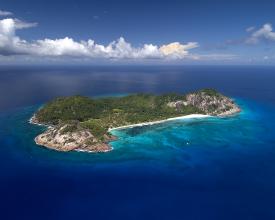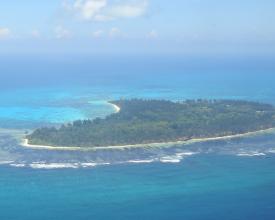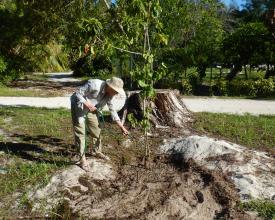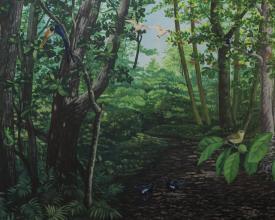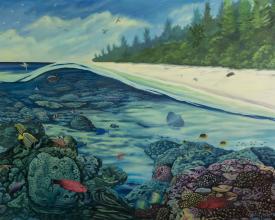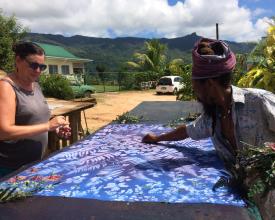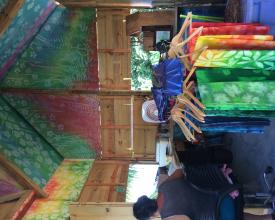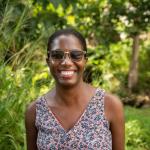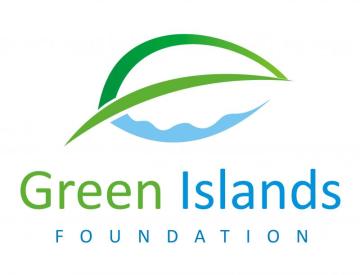
Protected Area management on private islands: innovate finance examples from Denis and North Islands, Seychelles
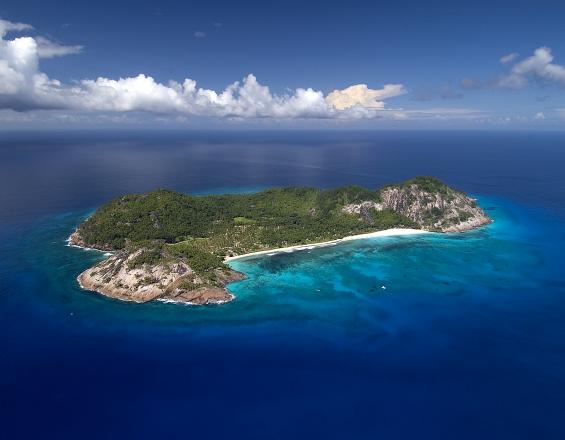
Green Islands Foundation, with support from the Government of Seychelles - UNDP-GEF Protected Area Finance project, has developed and implemented sustainable financing solutions for proposed protected areas on two private islands, Denis and North Islands, in Seychelles.
These will be the first private island reserves in Seychelles and, through the project, the islands will trial and implement novel long term sustainable financing mechanisms to fund setting up, management, policing and research at these reserves.
Steps are underway to proclaim the surrounding waters around North Island and Denis Island as marine reserves, ensuring their inclusion within the national protected area network. Island owners are dedicated to take the lead in monitoring and enforcing these new protected areas in collaboration with selected NGOs and with assistance of Seychelles government.
Contexto
Défis à relever
The establishment of long term sustainable financing at private resorts addresses challenges faced by many similar projects in small-islands context
- The non-availability for long term financing support for management of private protected sites especially after donor funds are exhausted
- Establishment of a market for high-end local products that can be sold as merchandise
- Access funds to conduct long term studies on ecosystems, threats and trends that allow for adaptive management of protected sites
Ubicación
Procesar
Summary of the process
A four-step approach is applied when developing long term financing schemes for private islands.
Firstly profiling of the clientele and holiday package need to be understood. This involves
- knowledge on when visitors come to the island, their age brackets, the activities they participate in;
- research into the possible funding streams which involve figures on revenue they can derive, what has been applied elsewhere and trial these at the specific islands.
- discussing with all persons involved at different management levels on the feasibility of adopting these funding streams. Often there may need to be additional trialing and re-consideration of certain funding options if need be.
- a business plan to be developed, defining the agreed financing scheme, presenting the marketing strategy for the scheme, and detailing annual and long-term revenue brought in by this scheme.
Building Blocks
Developing and trialing innovative financing mechanisms
In order to develop innovate financing tools for the proposed protected sites, it was important to thoroughly understand the profiles of the islands’ clientele , and to develop mechanisms that would not be seen as extorting more money from clients who were already paying hefty sums for their holidays on these private islands.
Extensive discussions about various funding options needed to be held at different management levels. e.g. the islands owners, the hotel managers, and marketing personnel in order to gauge an understanding of what products could be developed for the clients of these resorts. The resorts offer different holiday packages – from a five-star all-inclusive holiday package to a four-star sustainable island concept.
Therefore, options were trialed for adoption or adaption, or for dismissal. One such example was the tree planting activity allowing guests to commemorate important life events, thereby becoming involved in the protection of the environment.
The idea proved to be a popular and in-demand finance option on Denis Island, and it was assumed to also work well on North Island. However the scheme did not get approval, because North Island offers all-inclusive holiday packages, and so tree planting could not be charged.
Enabling factors
The adoption of the financing solutions requires their approval by the owners as well the clientele’s willingness to pay for it. Is it important therefore that all management levels are consulted and on par with the mechanisms proposed.
Further, mechanisms need to be innovative and appealing and not portrayed as yet another product put on sale. In order to get to the stage of adoption of a funding scheme, trialing needs to take into account its practically, and its fit with the product offered by the respective resorts.
Lesson learned
The discussions and approval of innovative financing mechanisms takes a long time to materialize, as these business decisions need to be thoroughly evaluated, and need approval from top management or island owners.
In small islands contexts, limited expertise available locally can restrict possible funding schemes to be developed. It may be important to obtain ideas on a regional scale, or at sites that have similarities to North and Denis Islands. In the case of North Island, its context resembles that of Chumbe Island off Zanzibar, so it was necessary to learn what has worked there.
Innovative funding schemes
The exclusiveness of these private islands means that they get a particular clientele that keeps returning for holidays at these places - some are known as repeated guests for over 15 years. Setting up a philanthropic club exclusively for selected guests allows them to donate to a conservation fund that will support the island’s protected area .
Secondly, unique high-quality merchandise was developed together with local artisans, with the aim of offering signature products exclusively available at these islands, and generating a premium price. A collaboration was forged with Roots Seychelles, who specifically designed textile products inspired by local culture and techniques. Selected pareos were made for clientele of Denis Island that would portray both the environment and colors of the island.
Another revenue generating program developed was the ‘plant-a-tree’ scheme where guests were invited to plant a tree to commemorate important life events such as a wedding, anniversary or birth, and thereafter made a donation to support the earmarked protected area or environment protection activities of the island. A commemorative plaque with any message requested by the guest is engraved, includeing the date of planting, and the tree species planted.
Enabling factors
In order to develop innovative schemes, it was necessary to chose unique products inspired by local culture and tradition also trailed schemes that seem to generate interest from guests.
Lesson learned
The development of these unique financing schemes needed not be seen as another way of extorting more money from guests. Careful thought needed to be given to how to make guests contribute to an important cause. The schemes therefore needed to be marketed correctly and trailed to ensure that they worked for the island’s specificities.
Impacts
Seeking long term and sustainable financing of nature reserves allow remote, private islands to receive legal protection status based on their high biodiversity value. These islands would otherwise fall outside of the government’s managed network of protected sites.
The access to long term financing allows such remote sites to receive permanent protection, consistent management and for long term research to be carried out.
The financing mechanisms proposed also include the production of high-end, unique merchandise that provides a market for local artisans to develop and to sell such products to visitors. Hand-made tie-dye pareos specifically designed for sale to Denis private island’s clientele were made by Roots Seychelles, a small local company. Two local artists also painted landscapes and seascapes of Denis island of which prints will be made available for purchase for visitors.
Beneficiaries
The scientific community, visitors to private islands, island managers , local communities and the tourism industry.
Sustainable Development Goals
Story
Denis Island is owned by the Mason family who are among one of the pioneers of Seychelles’ hospitality industry. The family endeavours to make the island self-sustainability sustainable, for the entire island, with tourism as the engine.
Denis Iisland has in 1998 started a comprehensive ecosystem restoration and conservation management plan which included the removal of invasive predators (cats in 2000 and rats in 2002) and subsequently introduction of endemicspecies. Sustainable production and import substitution also formed part of the Mason’s strategy for Denis’ future sustainability and self-reliance. The farm was expanded and a new farm-to-table concept adopted, as a means to limit imports to the bare essentials that cannot be grown on the island.
The research work was also extended into the marine environment, where a long-term marine survey program was started to understand long-term trends in population of marine predators, corals, fish and so on. The island also initiated a fishing policy that guides fishing activities for guests and staff at the island.
The creation of a protected marine reserve around the island solidifies the extensive effort put by the family into preserving the island. The research work further provides the scientific justification for the creation of the reserve. However, the reserve requires continuous management and resources. The development of the innovative funding schemes ensures dedicated funding for the proposed reserve, and that protection and research can continue for the long term.

